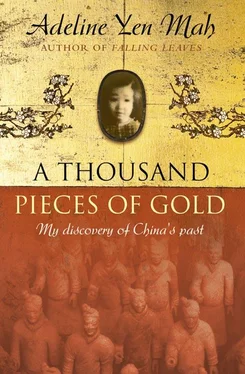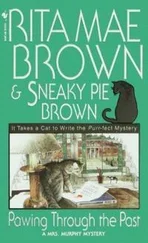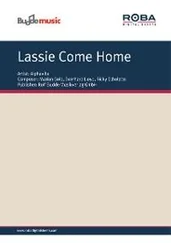Commenting on the behaviour of the two corrupt officials, the Chinese newspapers reported that two common ‘rabbit warrens’ for corrupt politicians were to obtain foreign passports for themselves, and to move family members, loved ones and money overseas. The executed vice-chairman had secretly deposited US$5,000,000 in bribes in a Hong Kong Bank account for himself and his mistress, whereas the deputy governor was quoted as having advised his son to get a green card in the US so that ‘you’ll have permanent residence there and I’ll have somewhere to go when I emigrate myself’.
This true story illustrates the importance of proverbs in influencing behaviour and forming opinions in China today.
How do the Chinese think? Why do we think that way? Do people in the west think in a different way?
All of us think in words. Therefore every form of thought is related to the language, culture and history of the particular thinker, and the land of their birth. Westerners and Chinese have different views of the world that may sometimes contradict one another, yet both may be right. For example, to an Englishman, Israel is in the Middle East and China the Far East; whereas to a Chinese person, Israel is in the West and England the Far West. Depending on the viewpoint, the conclusions are different, but both parties are correct.
For westerners to understand Chinese reasoning, it is essential to realise that, more than any other nation, Chinese rationale stems from the roots of our lengthy and well-documented past. The Chinese view of the world is highly dependent on the lessons learned from our forefathers. Traditionally, this ‘wisdom of the ages’ is often encapsulated in the form of four characters and presented as a proverb.
Many Chinese proverbs originate from ancient historical literature, poetry, letters and other writings. Based on actual events, they carry philosophical or moral messages that make them relevant and meaningful in contemporary life. At best, they radiate a glow that mirrors the Chinese mind, recalling incidents from bygone eras that define the Chinese way of thinking. They keep alive the memory of fables and legends and, following centuries of repetition, have evolved into ‘coded messages’ that are integrated into daily speech. Used correctly, they illustrate aspects of human behaviour that capture the very essence of our existence and there is no doubt that ancient proverbs still shape the thoughts and behaviour of Chinese people today. Lessons learned from conflicts and battles that happened hundreds, if not thousands, of years ago continue to serve as a backdrop to many Chinese decisions.
Written Chinese is a pictorial language. Most of the words originate from pictures of actual objects, not mental concepts. Because of this, the Chinese are used to viewing life in terms of concrete examples, using specific incidents to illustrate abstract ideas. Citation of proverbs summarising past legends has a particularly emotive appeal for the Chinese and plays a large part in the expression of Chinese thought.
Ordinary conversation between Chinese people is studded with quotes from ancient historians, poets and philosophers. The use of proverbs is often viewed as a barometer of a Chinese person’s knowledge of history, level of education and depth of wisdom. Hidden within the psyche of many Chinese, there is a lurking conviction that scholarship is more admirable than money, and nothing impresses a Chinese person more than to hear someone quote an appropriate proverb in a timely fashion.
The Chinese language has no alphabet and there is no connection between speech and writing. A person may be capable of understanding written Chinese without knowing how to read aloud or speak a single word. Each word is a different symbol and must be memorised separately. As the language developed, metaphors (figures of speech) and proverbs (short sayings based on previous experience) became increasingly important in the expression of Chinese thought.
In English language, new metaphors are also being born daily before our very eyes, just as in China. Some examples are hot seat (for the electric chair), gun moll (for the gangster’s girlfriend), Pearl Harbor (for sneak attack), meeting one’s Waterloo (for defeat), jousting windmills (for fighting useless battles), pay dirt (for reward) and pan out (for successful result). The last two terms came from the California gold rush.
Walt Whitman once said that ‘Into the English language are woven the sorrows, joys, loves, needs and heartbreaks of the common people’. The same can be said regarding Chinese proverbs and metaphors.
Whereas Shakespeare has been hailed for the last four hundred years by most English-speaking people as the greatest English writer who ever lived, very few westerners have heard of Sima Qian (145–90 BC), a Chinese historian who lived during the Han dynasty. In his lifetime he wrote only one book, a book of history called Shiji (Historical Record). Published a few decades after his death, Shiji has been a best-seller in China since that time and is still in print. Many Chinese feel that it is the greatest book ever written. Its influence on Chinese thought has been immense throughout the last two millennia. Many of the proverbs we use today came from this ancient tome.
Westerners, too, have been captivated by the charm of Chinese proverbs. When I was a medical intern at the London Hospital in the 1960s, I had the privilege of looking after the renowned British poet Philip Larkin. * He once described Chinese proverbs as ‘white dwarfs’ of literature because each was so densely compacted with thoughts and ideas. He told me that ‘white dwarfs’ were tiny stars whose atoms were packed so closely together that their weight was huge compared to their size. He said that the enormous heat radiated by these small stars was like the vast knowledge and profound wisdom contained in these compact sayings gleaned from China.
Recently, as I was reading an American book, Who Moved My Cheese by Spencer Johnson, my husband Bob pointed out that the message it contained is essentially the same as one stated over two thousand years ago by Li Si, the man who eventually became Prime Minister to the First Emperor of China.
As a young man, Li Si worked as a petty clerk in his district. In the lavatory attached to his office, he observed numerous scrawny rats lurking around and eating the excrement, but they would scurry off at the first approach of man or dog. Visiting the granary one day, he noticed that the rats there were not only sleek and fat, but were calmly helping themselves to the sacks of grain. They squatted comfortably beneath the galleries and hardly stirred when disturbed. Thereupon he sighed and thought to himself, ‘A man’s ability or lack of ability resembles the behaviour of these rats. Everything depends on where he locates himself.’
The point made by the American writer is the same as that mentioned by the Chinese clerk: a person must be willing to move to another location in response to change. Otherwise the cheese (or grain) will run out regardless of one’s ability.
Most Chinese are proud of their country’s long history. While doing research on the origin of proverbs, I came to realise that many of them came from the pen of one man: the brilliant Han dynasty historian Sima Qian, who wrote his seminal book Shiji (Historical Record) some two thousand years ago.
Here I have chosen a few commonly used proverbs gleaned from the writings of Sima Qian, combined them with my personal reflections, and related the history behind them to provide a window into the Chinese mind. I hope you will find them as fascinating as I did when I first heard them from my Ye Ye all those many years ago.
* See Watching the Tree.
Читать дальше












